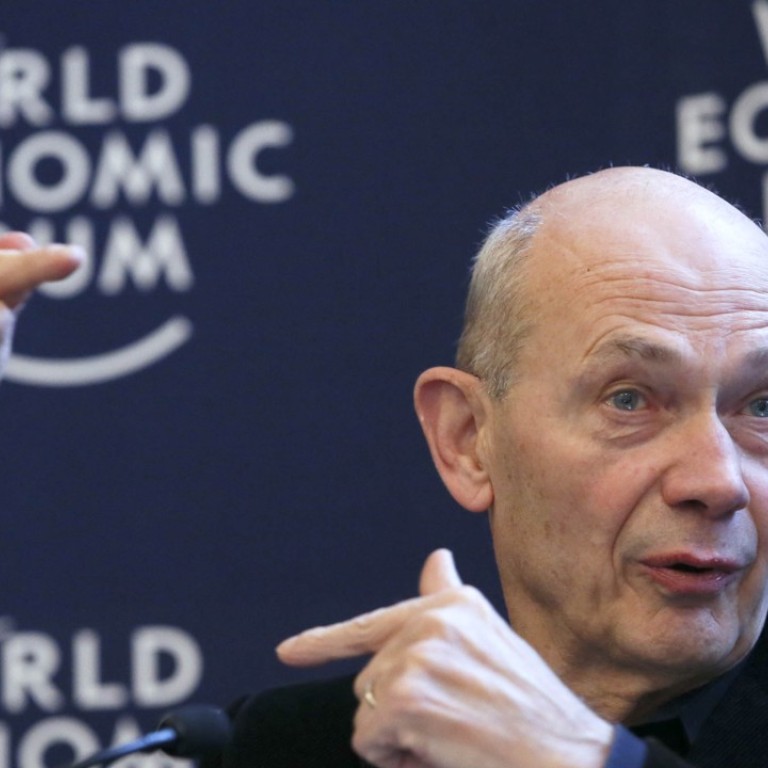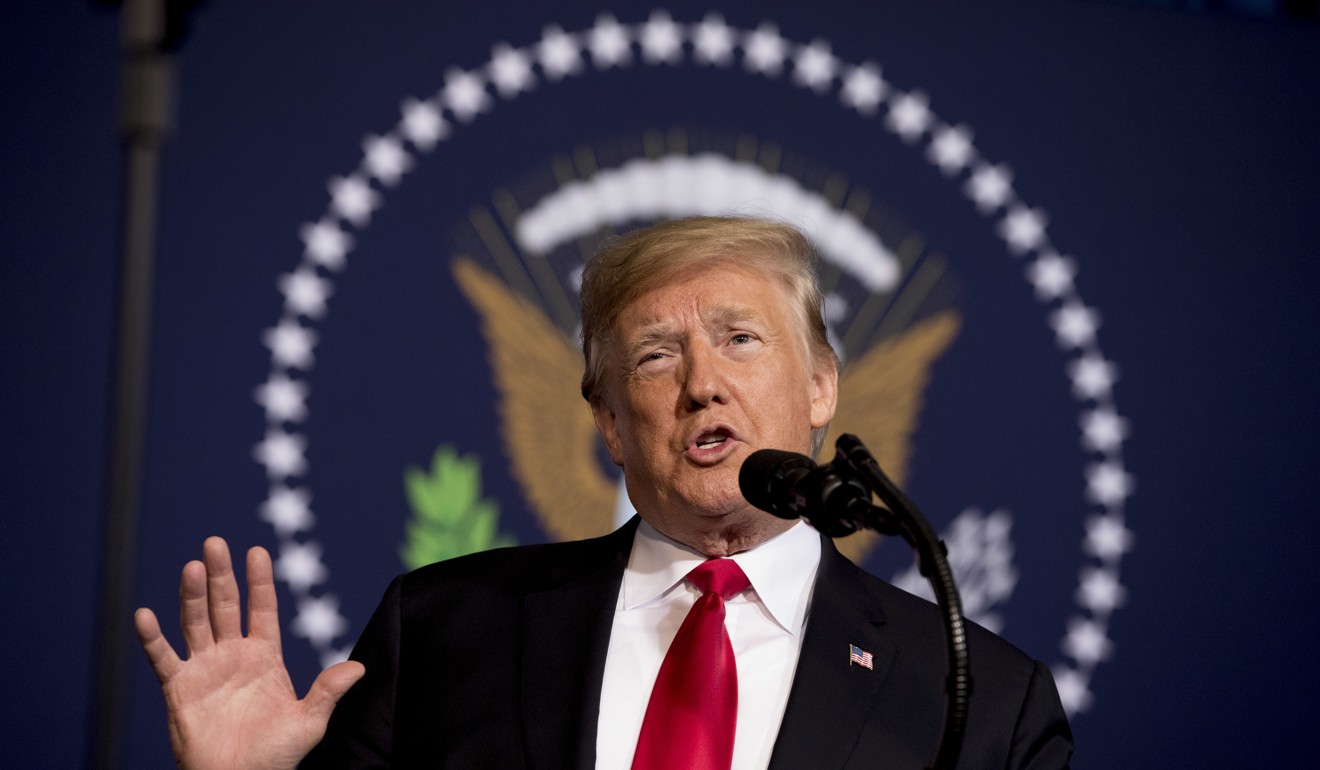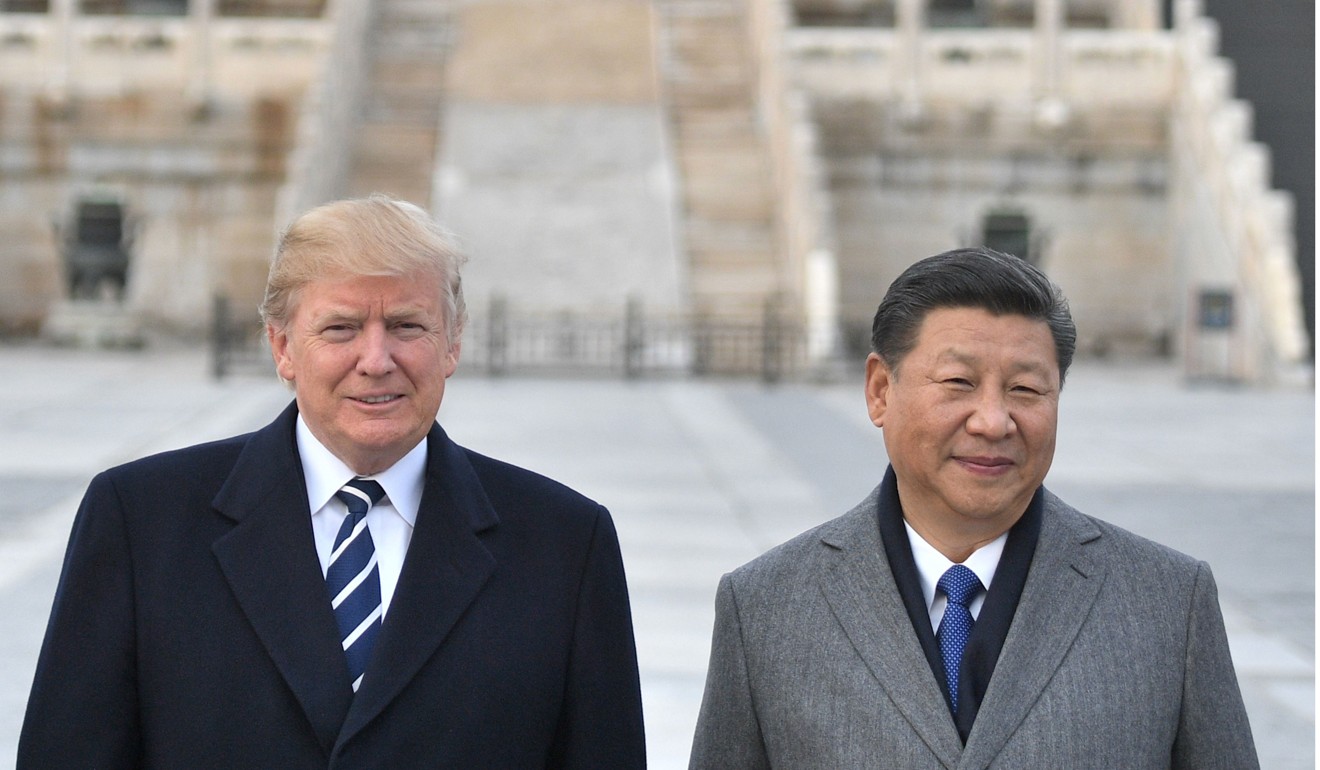
‘Trump will achieve nothing with tariffs’: former WTO head blasts US policy on China
- In candid interview, Pascal Lamy says arrested Huawei CFO is the victim of ‘odd’ and ‘wrong’ extraterritorial sanctions
Pascal Lamy does not mince words. That may be because he is no longer burdened by his position as director general of the WTO, which he held between 2005 and 2013, or because the China-Europe International Business School (CEIBS), where he is a distinguished professor, offers a rare platform to speak freely in China. In this conversation with the South China Morning Post, before his master class at the Shanghai campus, he analyses the current trade dispute between the United States and China and explains why he thinks US tariffs on Chinese products will not achieve their aims.
– How should China’s trade surplus, which seems to be the key point of friction with the US, be addressed?
– I don’t think there is any serious problem with this surplus. It was 10 per cent of Gross National Product 10 years ago and it is 1 per cent now. Imports have also increased more than exports in the past decade, which is what was expected to happen. The US has a structural trade deficit that will remain in place as long as its citizens consume more than the average consumers on the planet and save less than the rest. This is not a trade-related issue and, therefore, [US President Donald] Trump will achieve nothing imposing tariffs on Chinese products.
– What will happen if he keeps doing just that?
– Chinese producers will delocalise to Vietnam, Bangladesh, Egypt or Ethiopia, and the US overall trade deficit will remain unchanged. It’s similar to what happened in the 70s and 80s, when the big deficit was with Japan. Now it’s less with Japan and more with China. But if you take the US deficit with Asia, it has not changed. And selling a few more Boeings or tonnes of soya will not solve anything.

– You have repeatedly said that you don’t expect a full-blown trade war between the US and China, although you expect clashes will continue for decades. Do you still maintain this forecast?
– I do. I’m not reading any crystal ball, but I believe that as long as this US-China rivalry gets more tense we will have more manifestations of that in the trade field. But I don’t think it will degenerate into a global crisis. Still, I feel that the current situation is more dangerous than the previous one, when this geopolitical rivalry was reasonably well handled by both sides.
– It’s not only the US. European companies are also asking for tougher action against China. They request a level playing field based on reciprocity.
– This is correct. Trump is probably wrong on everything he does in trade except for one thing, which is the need to reform the WTO. Because some of its rules don’t discipline China enough. Subsidies and the dispute settlement are the main areas where reform is needed, and the US and the EU are working together on this. But we are talking about changing the rules of the game, and that can’t be done bilaterally. It has to come from a multilateral discussion. The problem we have with Trump is that one day he says that the WTO needs reform and the next he says he wants to quit the WTO. I don’t know what he really wants to do, but we all need a rules-based multilateral system. Even if the US decided to quit, the rest of the world would embrace this collective insurance against protectionism.
Don’t ask why US acted against China’s Huawei. Ask: why now?
– You have often stressed the need to keep negotiating, but what should the US and the EU demand from China?
– First of all, we have to keep pushing China to keep shrinking its state-owned enterprise sector, which is too big now for an economy of its size and level of development. It’s not sustainable that China keeps more than one-third of its economy under state command. That’s why the investment treaty negotiated in the EU to treat Chinese investments reciprocally is the way to go.
– The world expected China to speed up economic reforms, but there seems to be some stagnation there.
– If you compare the rhythm of China’s opening up reforms today to what it was when it joined the WTO in 2001, it has certainly slowed down. Although the official discourse remains committed to it, for the moment we see more talk than walk. And, particularly with Xi Jinping, the country has moved towards more centralisation.
– On the latest developments, what do you make of Huawei’s case?
– This is an issue not related to the present trade troubles between the US and China. This is related to the fact that the US, because of its supremacy, can afford to have a system of extraterritorial sanctions applying to a number of countries, including Iran and Russia among others. We Europeans know well how it works because we are also hit by these sanctions. We think this is not in conformity with international law, but nobody has been able to change this system which I believe is odd and wrong. Now it just happens that it’s a high-level executive of Huawei, a huge tech and telecom giant from China, who is the one suffering from this.

– But many people argue that the trade war is in fact a technological war, and that the Huawei case is related to it.
– That’s right. The trade tensions between the US and China cannot be interpreted without factoring a much larger issue, which is the geopolitical rivalry between the two countries. Technology is the new front of competition, because we all know that a large part of future growth will come from innovation and research. But we can compete trying to reach a win-win game or we can do what Donald Trump is doing, which is trying to damage China. The case of Huawei is one of the manifestations of the US using its power to push China back, and that’s why I don’t think it’s unintentional. It’s also a reflection of how Trump has broken away with the policy of containing China and trying to bring it to the international system, in place since Kissinger. Trump has taken a very different stand. A much more aggressive one. And I believe this is wrong and dangerous, because it reinforces part of the Chinese system which is more nationalistic and inward looking. More Middle Kingdom-like. And a more aggressive US can create a more aggressive China in a chain reaction that would be bad for all.

